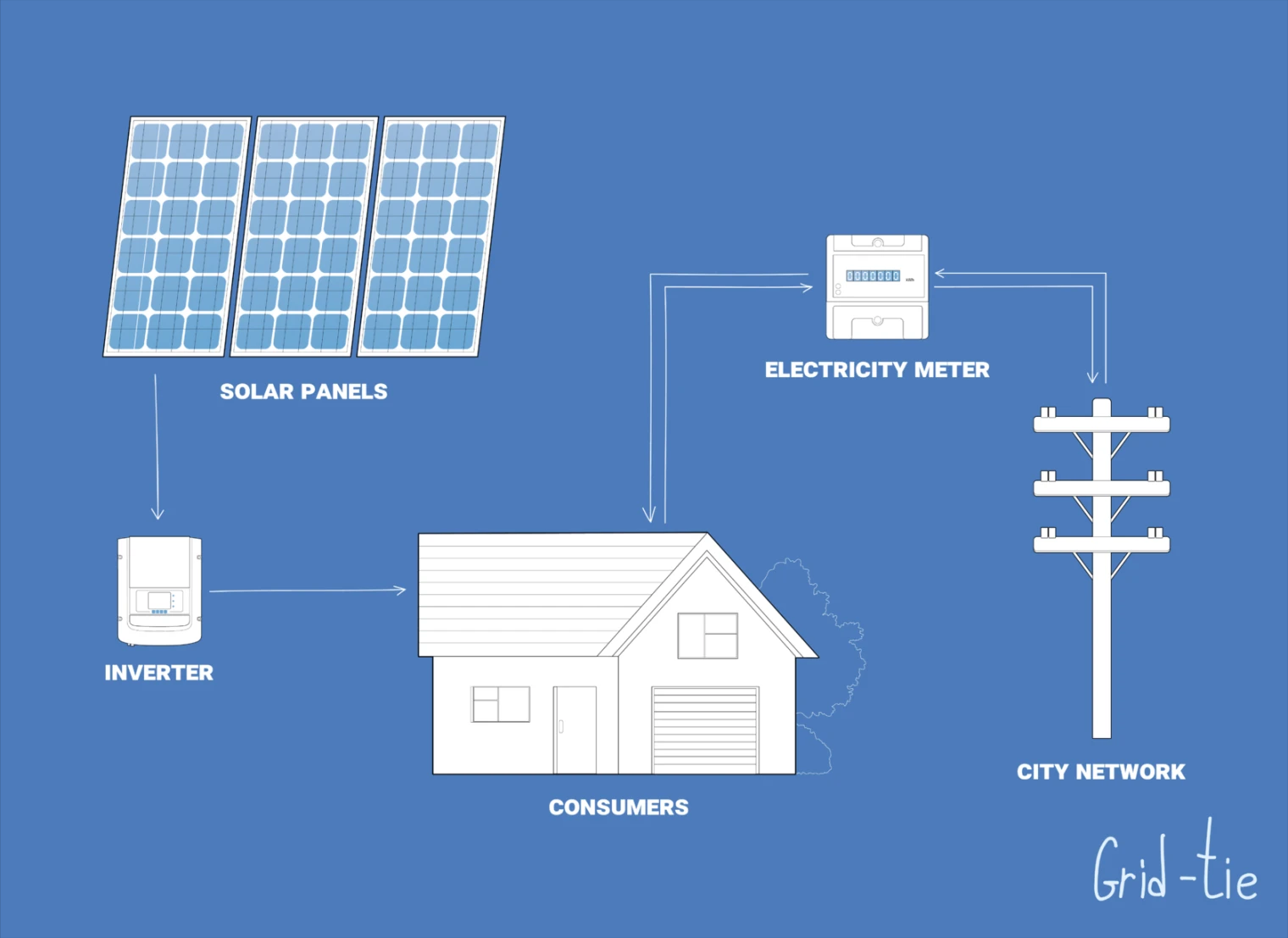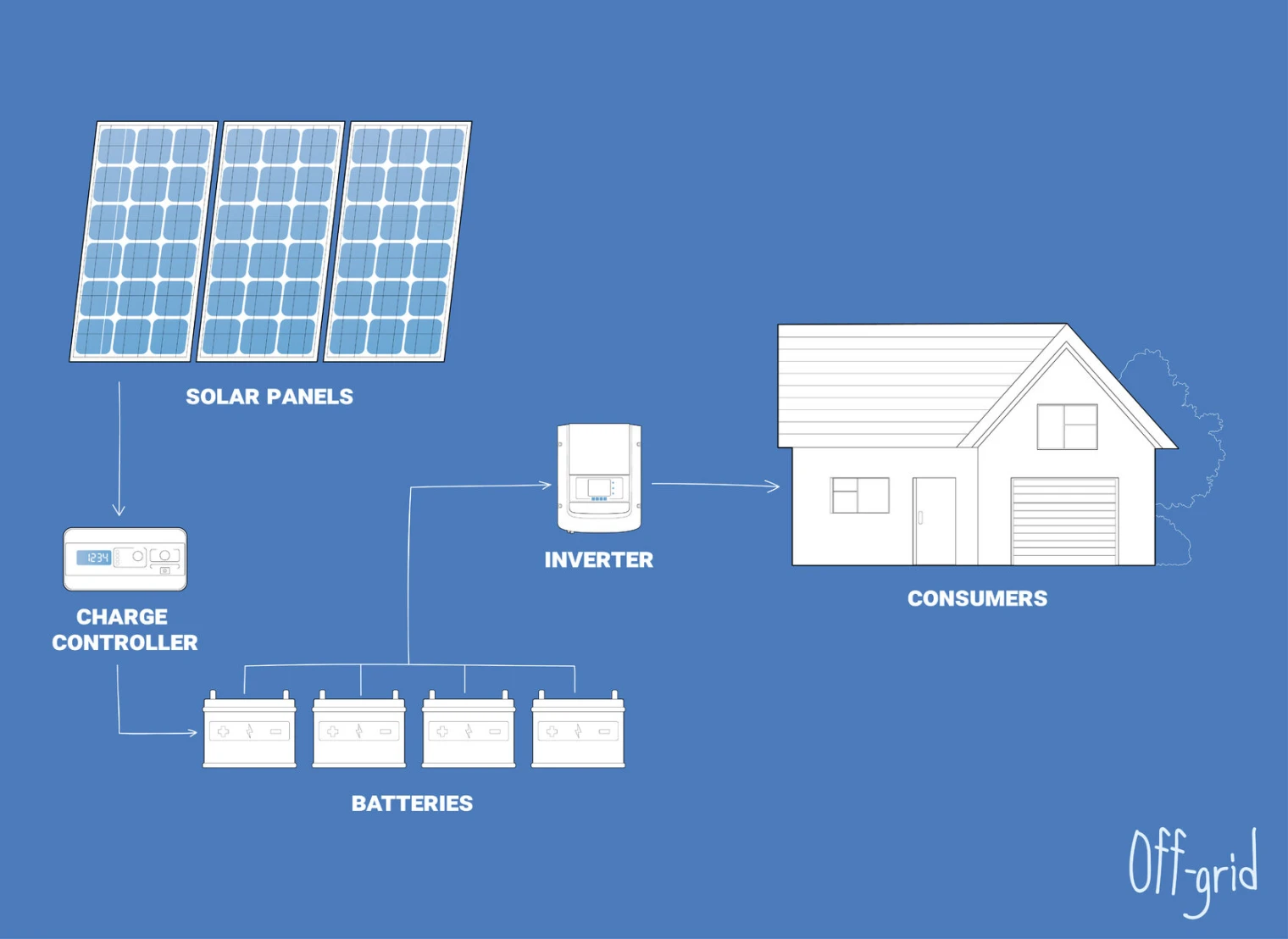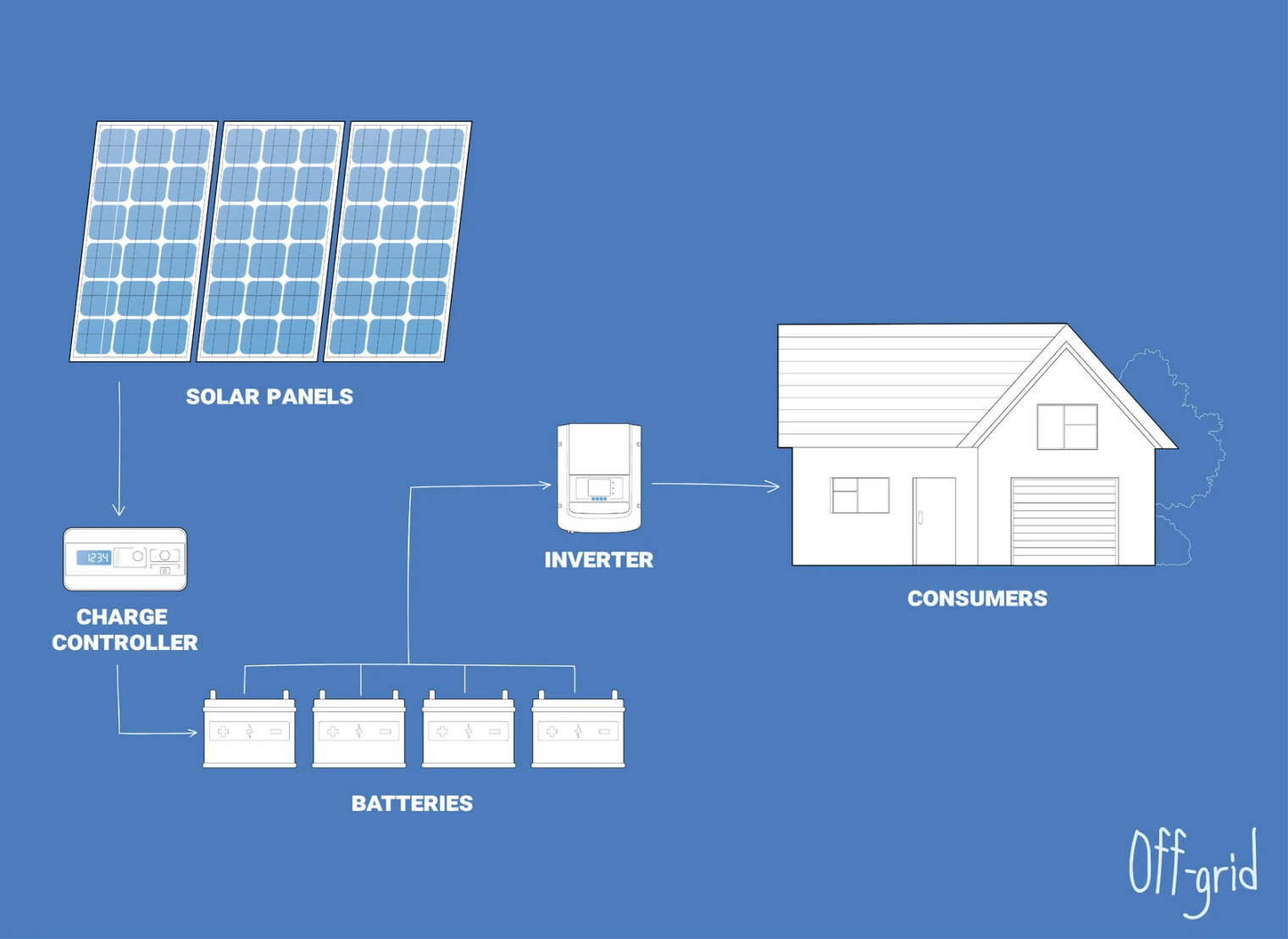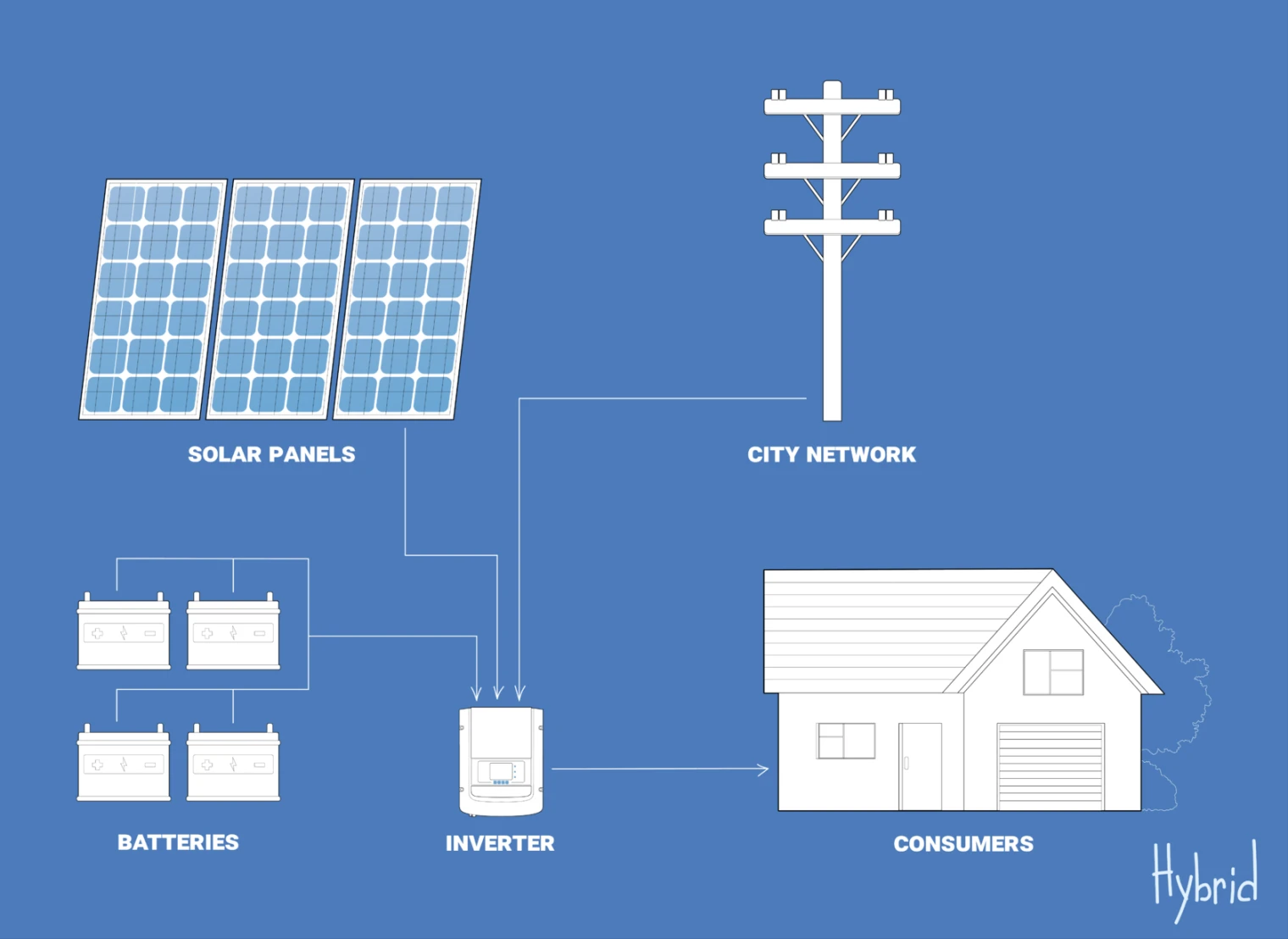There are three types of solar panel systems: grid-tied (on-grid), off-grid, and hybrid solar systems.
Each type of system has a unique setup that affects what equipment is used, the complexity of installation, and, most crucially, your potential costs and savings.
What would be the best in your situation? Let’s take a closer look at the benefits and downsides of grid-tied, off-grid and hybrid solar systems.
Grid-tied solar systems
Grid-tied, on-grid, utility-interactive, grid intertie, and grid backfeeding are all terms used to describe the same concept – a solar system that is connected to the utility power grid.
DC electricity generated by the solar panels is sent to the inverter, which converts the power into AC electricity. This electricity is first used to service the home loads, while all surplus energy is exported to the grid in return for electric bill credits.

Benefits of grid-tied systems
A grid connection will allow you to save more money with solar panels through net metering, lower equipment and installation costs, and better efficiency rates.
1. Save more money with net metering
Your solar panels will often generate more electricity than what you are capable of consuming. With net metering, homeowners can put this excess electricity onto the utility grid instead of storing it themselves with batteries.
2. Lower upfront costs and ease of installation
Grid-tied solar systems are the only type of solar system that don’t require a battery to function. This makes grid-tied systems cheaper and simpler to install, and also means there is less maintenance required.
3. You can use the utility grid as a virtual battery
The electric power grid is in many ways also a battery, without the need for maintenance or replacements, and with much better efficiency rates.
Off-grid solar systems
An off-grid solar system (off-the-grid, standalone) is the obvious alternative to one that is grid-tied.
For homeowners that have access to the grid, off-grid solar systems are usually out of question. Here’s why. To ensure access to electricity at all times, off-grid solar systems require high-capacity battery storage and a backup generator. On top of this, a battery bank typically needs to be replaced after 10 years. Batteries are complicated, expensive, and decrease overall system efficiency.
Off-grid systems require large amounts of energy storage as there is no option to import power from the electric grid. As such, they are typically designed using lead-acid or lithium batteries.

Benefits of off-grid solar systems
1. Can be installed where there is no access to the utility grid
Off-grid solar systems can be cheaper than extending power lines in certain remote areas.
Consider off-grid if you’re so far away from the grid. The system can save so huge costs of overhead transmission lines.
2. Become energy self-sufficient
Living off the grid and being self-sufficient feels good. For some people, this feeling is worth more than saving money.
Energy self-sufficiency is also a form of security. Power failures on the utility grid do not affect off-grid solar systems.
On the flip side, batteries can only store a certain amount of energy, and during cloudy times, being connected to the grid is actually where the security is. You should install a backup generator to be prepared for these kinds of situations.

Hybrid solar systems
Hybrid solar systems combine the best of grid-tied and off-grid solar systems. These systems can either be described as off-grid solar with utility backup power, or grid-tied solar with extra battery storage.
If you own a grid-tied solar system and drive a vehicle that runs on electricity, you already kind of have a hybrid setup. The electrical vehicle is really just a battery with wheels.
In a hybrid solar system, energy generated from the solar panels is first used to service the home’s electrical loads (flow #1). After the home’s energy needs have been supplied, solar power is used to charge the solar battery (flow #2). If there is still a surplus of solar energy, it will be exported to the electric grid in return for credits (flow #3). The system pictured above shows an AC-coupled lithium battery, but hybrid systems can also be designed using either lithium or lead-acid-based DC batteries.

Benefits of hybrid solar systems
1. Less expensive than off-grid solar systems
Hybrid solar systems are less expensive than off-grid solar systems. You don’t really need a backup generator, and the capacity of your battery bank can be downsized.
If your battery runs out of charge at night, you can simply buy off-peak electricity from the utility company. This will be much cheaper than operating a generator.
2. Smart solar holds a lot of promise
The introduction of hybrid solar systems has opened up many interesting innovations. New inverters let homeowners take advantage of changes in the utility electricity rates throughout the day.
Solar panels happen to output the most electrical power at noon – not long before the price of electricity peaks. Your home and electrical vehicle can be programmed to consume power during off-peak hours (or from your solar panels).
Consequently, you can temporarily store whatever excess electricity your solar panels generate in your batteries, and put it on the utility grid when you are paid the most for every kWh.
Smart solar holds a lot of promise. The concept will become increasingly important as we transition toward the smart grid in the coming years.
categories
recent posts
scan to wechat:everexceed
